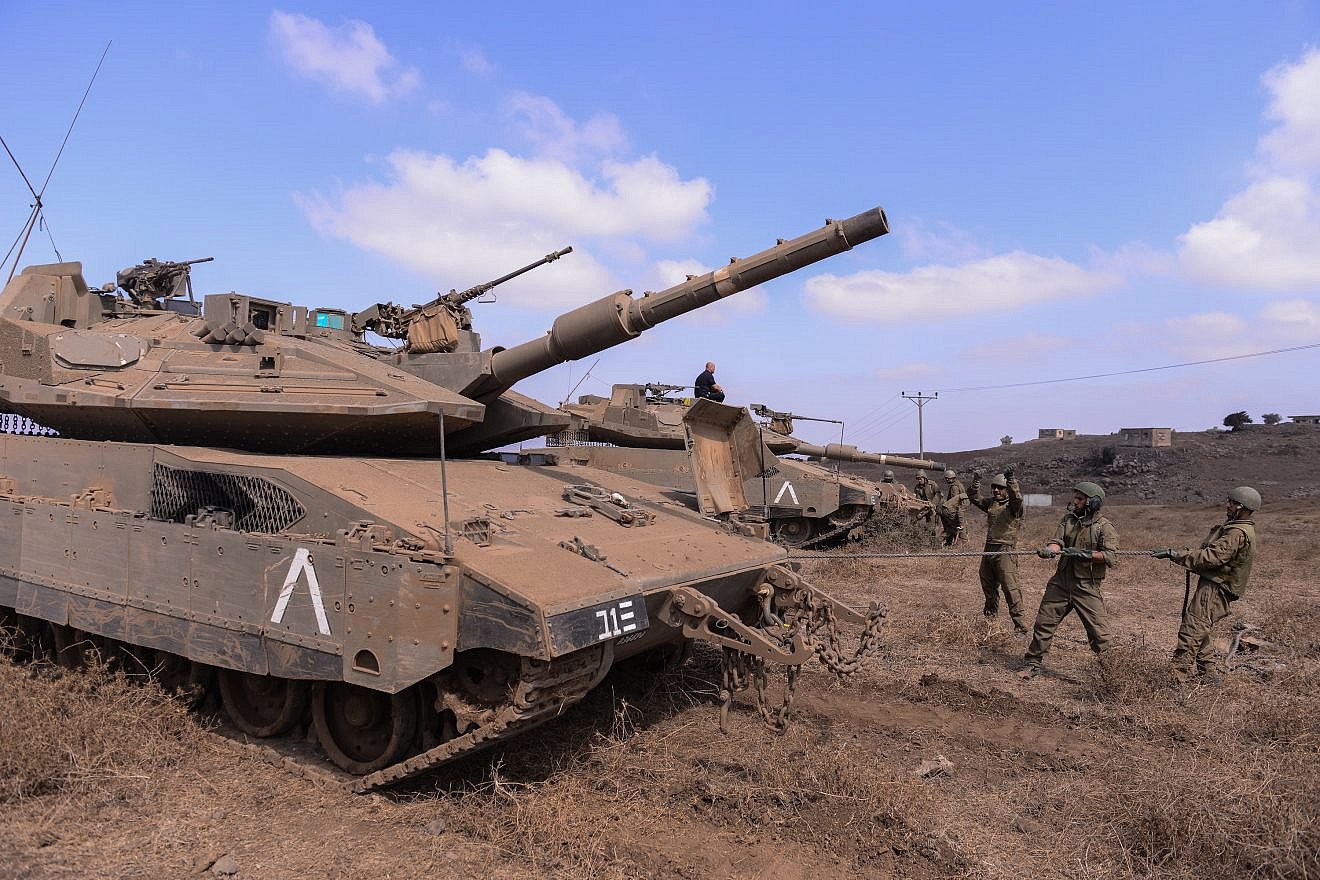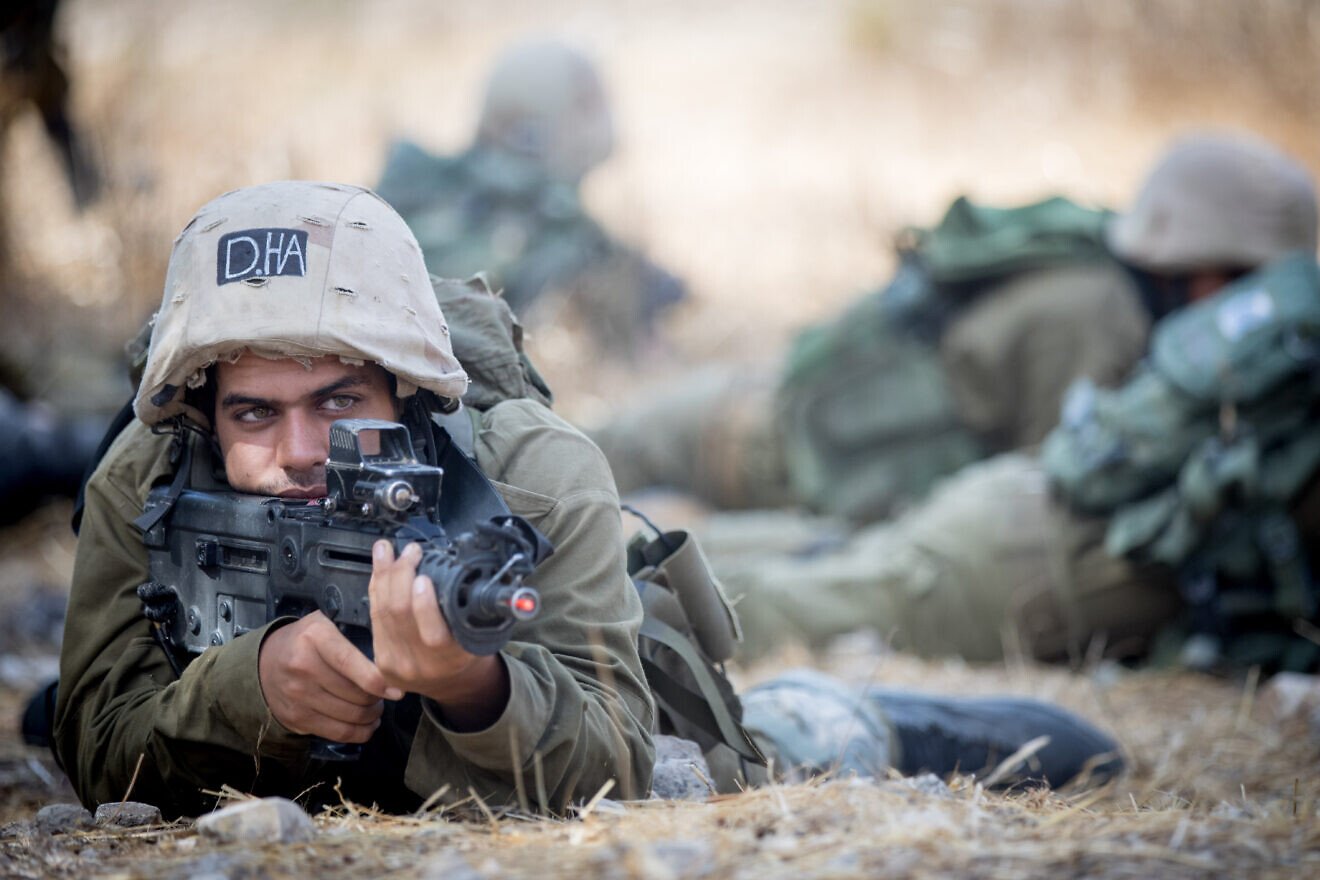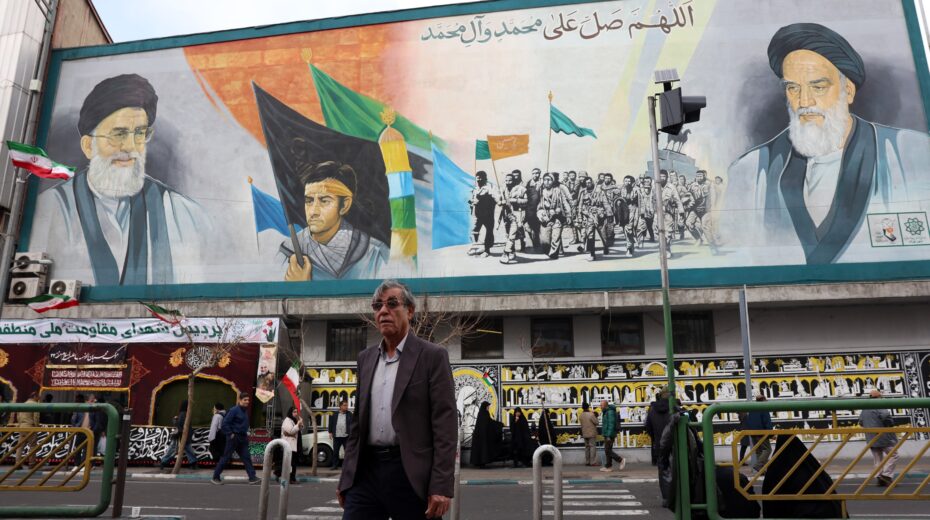(JNS) The rise in arms embargoes due to the ongoing war in Gaza has prompted Israel’s government to establish a new “Munitions Directorate” to develop recommendations to reduce Israel’s dependency on foreign countries for military supplies.
“We decided, and it was part of the recommendation of a special committee which was nominated to deal with the defense budget, that Israel will minimize its dependence on others,” IDF Maj. Gen. (res.) Yaakov Amidror, senior fellow at the Jerusalem Institute for Strategy and Security (JISS), told JNS.
A former national security adviser to Israeli Prime Minister Benjamin Netanyahu, Amidror noted, “We will never produce something like F-35 fighters or submarines. But in the whole area of munitions and spare parts, we can be much more independent.”
IDF Brig. Gen. (res.) Amir Avivi, founder of the Israel Defense and Security Forum (IDSF), told JNS: “There is a very clear understanding now that we need to be as self-sufficient and independent as possible, as much as we can and in every single respect, from advanced munitions to parts and, of course, energy.”
The creation of the new directorate was ordered by Netanyahu and Israeli Defense Minister Israel Katz, spurred by embargo actions undertaken by countries traditionally considered its closest allies, including the United Kingdom, Canada and Italy.
Slovenia went further than most. In July, it became the first European Union country to implement a full embargo, banning the import and export of arms to Israel, including their transit across its territory. Spain, whose socialist government has staked out a hardline position against Israel, is deliberating a sweeping ban of its own, according to El País.
More serious is that Germany, which accounted for 30% of Israel’s arms imports from 2019–2023, halted any exports that “may be utilized in the Gaza Strip,” Chancellor Friedrich Merz said in August.
Arms embargoes are not new in Israel’s history. At its birth in 1948, Israel faced an arms embargo from the United States. Two decades later, on the eve of the Six-Day War, France—then Israel’s principal arms supplier—imposed its own embargo.
In 2014, during “Operation Protective Edge,” the Obama administration refused Israel arms. “Ten years ago, we had terrorists popping up from tunnels inside Israel. The US wouldn’t give us weapons. And I remember the shock in the defense establishment,” said Avivi, noting that war wasn’t a matter of conquering Gaza, but of destroying terror tunnels, “and they still didn’t give us weapons.”
At the time, Avivi served as the chief auditor of the Israeli defense establishment. “I audited the ability of our industries to produce what we need,” he recalled, noting his audit painted a “terrible” situation.
Amidror conceded that Israel’s vulnerabilities were, in part, self-inflicted: “There were some production lines that we shut down because, economically, it was not wise to continue. But now we understand that it creates a weak point that might be exploited by other countries. So we will resume our ability to produce those in Israel.”
Another reason Israel’s dependency grew deeper over time was a decision by then-US President Barack Obama to forbid Israel from converting US aid dollars into shekels. That rule change forced Israel to move more production lines to American soil. “Our dependency grew dramatically,” said Avivi.
The consequences became stark in the opening days of the current war. “We were in very grave danger at the beginning with lack of munitions and parts,” said Avivi. “The industry and the minister of defense were forced to become creative in finding solutions. It affected the pace of war and our capabilities. It cost lives.”
For Avivi, the failure to prepare adequate supplies is as grave as the intelligence lapses that enabled Hamas’s Oct. 7, 2023 attack. “We have to ask: why didn’t we learn the lesson already in 2014? Why didn’t we invest in our industry? Why didn’t we buy more munitions?”
To rectify the situation is straightforward, according to Amidror. “Identify the most important elements that we needed but didn’t have enough of, or we didn’t produce, and make sure that we have enough of it,” he said. “If we can produce it in Israel, make sure that we will produce it. If we don’t produce it by ourselves, put enough of it in storage.”
Avivi agreed that those were the two options. Either build domestic production lines or ensure sufficient stockpiles. While he said that there was no right answer, domestic production offers advantages in terms of revenues and jobs. “Eighty percent of our industries’ military production is for export,” he noted.
For Avivi, the challenge is not just weapons but also energy. He pointed to the Bazan Oil Refineries in Haifa Bay, which were critical to producing numerous fuels, everything from diesel to a special formula used by drones. Bazan was continually a target of Iran during the 12-day war in June, proving its strategic importance, he said.
Despite this, there are still people in Israel’s government who want to close it. They want to put up houses in its place, he said. An Israel Hayom story on Monday featured residents living near the refinery calling for Bazan’s closure precisely because it is a target for missiles, as well as pollutes the area.
Asked whether Israel could retaliate against embargoing countries, Avivi said Israel supplies vital intelligence to these countries, which has saved them time and again from terrorist attacks. It could threaten to withhold that intelligence, he said.
Amidror emphasized that the new directorate’s mandate is narrowly focused: “This committee addresses the decision of Israel to be less dependent on others in the area of munitions and spare parts. Energy and diplomacy are something else. It’s not connected to this committee.”
“We have learned a lot,” he added. “Israel is already producing many things it didn’t produce before the embargoes.”
Want more news from Israel?
Click Here to sign up for our FREE daily email updates















Think of how much more money Israel would have at home if they didn’t have to spend it on necessities in fickle countries that go with the flow of terrorism, especially when it is against Israel. The world is moving very quickly in the direction of finding themselves depending on Israel for more of everything in the near future. It is a good time for Israel to prepare.